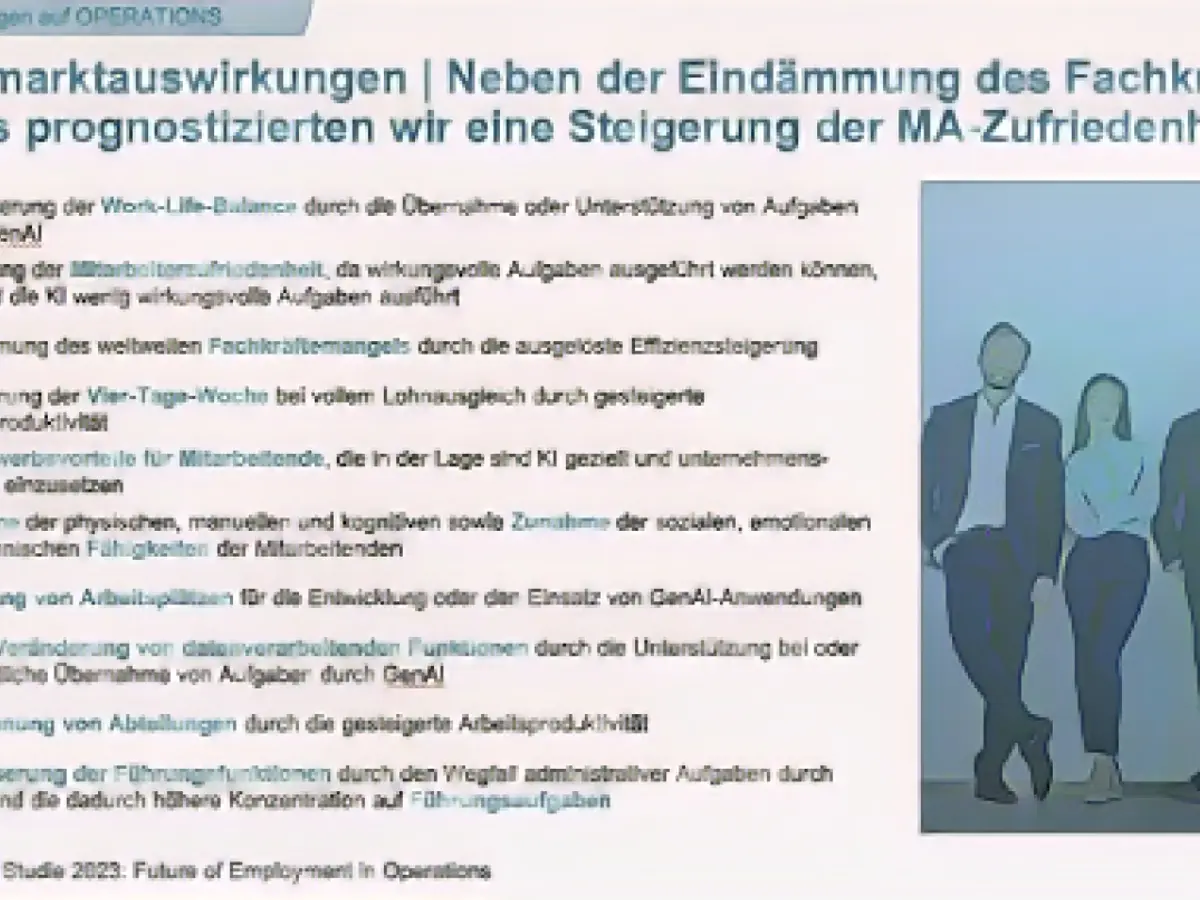Background: Artificial intelligence takes over automotive production - The robo-managers are coming
Everyone is talking about AI at the moment. Programs such as ChatGPT have become part of everyday life. In the automotive industry, smart software is playing an increasingly important role in production. Algorithms are already predicting where errors are most likely to occur, helping to increase quality and reduce costs at the same time. An important point in the fierce price war in the investment-intensive transformation to electromobility.
But this is just the beginning. According to a study by management consultants Horváth, there is still great potential for automation in production through artificial intelligence. To be precise, so-called generative AI, which focuses on creating something new. Not so much in actual production, which manufacturers have already made very efficient, but in tasks that are indirectly related to production. For example, in product design, development, production controlling, production planning, supply chain management or logistics planning.
According to the study, these tasks will experience a quantum leap in automation by 2029 thanks to generative AI ("GenAI"). If computer programs take over the majority of tasks, there will be less for humans to do. You can imagine what this means for jobs. The analysts have examined various activities and have come to the conclusion that up to 80 percent of tasks will no longer have to be carried out by skilled workers in the future, but can be performed by AI applications. The analysts have drawn up a ranking list of which tasks can be taken over by artificial intelligence and to what extent (the automation potential is given as a percentage).
Production controller (up to 80 percent) Production planner (up to 80 percent) Work planner (up to 80 percent) Software developer (up to 60 percent) Process engineer (up to 60 percent) Development engineer (up to 60 percent) Technical production designer (up to 60 percent) Supply chainManager (up to 60 percent) Logistics Planner (up to 60 percent) System Engineer (up to 60 percent) Automation Engineer (up to 60 percent) Supplier Manager (up to 60 percent) Quality Engineer (up to 60 percent) Project Manager (up to 40 percent) Team Leader (up to 40 percent) Department Manager (up to 40 percent) Management (up to 40 percent)
When asked whether this ranking list should be interpreted to mean that four out of five of the jobs that can be automated up to 80 percent will be eliminated, study director Tobias Bock replies: "Yes, the fifth person will then only have a monitoring function or the task of validating the results, similar to a pilot in an airplane. This presupposes that experts and specialists are still needed to monitor the AI." Whether this is all so easy to implement remains to be seen. After all, it will be difficult to convince people who have been doing this job for several decades to retrain. On the other hand, it is important for companies not to lose this experience.
The increased use of artificial intelligence will inevitably lead to a restructuring of job profiles. Especially as managerial tasks can also be carried out by computer programs. The Horváth experts assign an automation potential of up to 40 percent to management positions such as team leader, department head and managing director. The robo-manager can therefore take on a number of tasks. These include monitoring the financial aspects of the company, including budgeting, accounting and financial reporting. This is accompanied by an automated analysis and evaluation of operational procedures and processes. Based on this, the software also takes over the further development of the corporate strategy.
So is there also a threat of a clear-cutting among managers? The study does not think so. Rather, the tasks are shifting towards emotional, ethical and social issues. "No resources for personnel issues and leadership - no manager will be able to make excuses for this in the future," says study director Tobias Bock. "Professionalism is becoming less important, while AI experience, leadership qualities and social skills are becoming more important."
Read also:
- In the future, generative AI could significantly automate tasks in the automotive industry, such as product design and logistics planning, which are indirectly related to production.
- The study by management consultants Horváth suggests that up to 80% of tasks in roles like production controller and software developer could be taken over by AI applications.
- As AI becomes more prevalent in automotive production, the focus for managers will shift towards emotional, ethical, and social issues, according to study director Tobias Bock.
- To stay competitive, companies must adapt to the increased use of artificial intelligence in the automotive industry and restructure job profiles accordingly.
- ChatGPT, a popular AI program, is already integrated into everyday life and is a testament to the growing influence of artificial intelligence in various sectors, including the automotive industry.
- To accommodate this shift, managers will need to acquire new skills, such as AI expertise and leadership qualities, to complement their traditional managerial duties.
Source: www.stern.de








